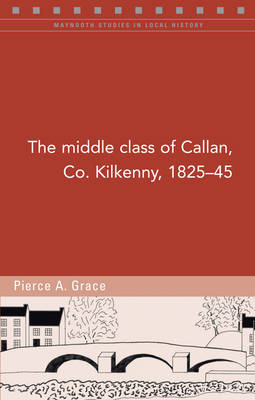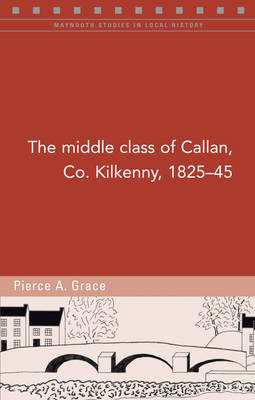
- Afhalen na 1 uur in een winkel met voorraad
- Gratis thuislevering in België vanaf € 30
- Ruim aanbod met 7 miljoen producten
- Afhalen na 1 uur in een winkel met voorraad
- Gratis thuislevering in België vanaf € 30
- Ruim aanbod met 7 miljoen producten
Zoeken
Omschrijving
This short book uses the remarkable diaries of Callan resident Amhlaoibh O Suilleabhain to examine the changing fortunes of the middle class in one small Irish town just before the Famine. Their private lives, as described in O Suilleabhain's diaries, were taken up with the universal concerns of their birth, marriage, and death, as well as health, diet, language, and leisure. Their public interests reflected the national scene with religion dividing them into Catholic and Protestant factions. The small Protestant group, only 3% of the population, controlled all the levers of local power in 1825, but, by 1845, the increasingly educated Catholic middle class were beginning to have a say in the new local government institutions, such as town commissioners and poor law guardians established by the Whig administrations of the 1830s. Only in the face of the cholera epidemic of 1832 did the two communities put aside their religious differences for the protection of all. (Series: Maynooth Studies in Local History) [Subject: History, Irish Studies]
Specificaties
Betrokkenen
- Auteur(s):
- Uitgeverij:
Inhoud
- Aantal bladzijden:
- 60
- Taal:
- Engels
- Reeks:
Eigenschappen
- Productcode (EAN):
- 9781846825804
- Verschijningsdatum:
- 18/12/2015
- Uitvoering:
- Paperback
- Formaat:
- Trade paperback (VS)
- Afmetingen:
- 135 mm x 213 mm
- Gewicht:
- 90 g

Alleen bij Standaard Boekhandel
+ 27 punten op je klantenkaart van Standaard Boekhandel
Beoordelingen
We publiceren alleen reviews die voldoen aan de voorwaarden voor reviews. Bekijk onze voorwaarden voor reviews.











